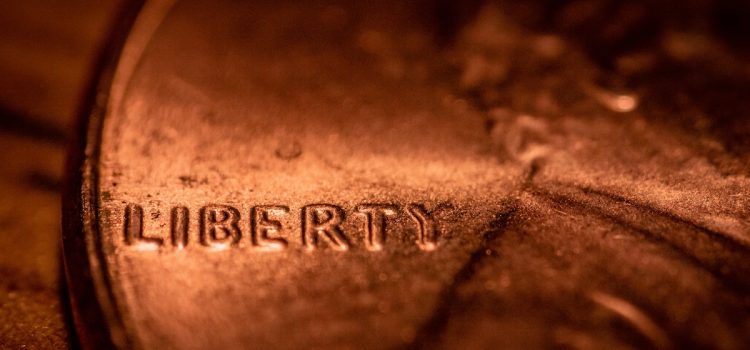

This article is an excerpt from the Shortform book guide to "And There Was Light" by Jon Meacham. Shortform has the world's best summaries and analyses of books you should be reading.
Like this article? Sign up for a free trial here.
How did Abraham Lincoln’s faith inform his view of the Civil War? How did the Emancipation Proclamation contribute to the Union’s war effort?
The American Civil War dominated Abraham Lincoln’s presidency. Historian and biographer Jon Meacham discusses Lincoln’s motivations and actions during the war, covering in particular the Emancipation Proclamation, the Gettysburg Address, and the war’s beginning and end.
Keep reading to learn about President Lincoln and the Civil War.
President Lincoln and the Civil War
Meacham tells us that, after the Southern states announced they were breaking away from the Union, President Lincoln made an uncharacteristically one-sided statement: He wouldn’t compromise with the Confederacy, and he wouldn’t allow the nation to split. In other words, Lincoln didn’t recognize the states’ right to secede; he was determined to dissolve the Confederacy and bring its members back into the Union.
The Confederacy responded by making the opening move of the American Civil War: On April 12, 1861, Confederate forces attacked a federal garrison in South Carolina called Fort Sumter. The following morning, Lincoln made another statement saying that he was prepared to meet violence with violence, and so the war began in earnest.
We’ll begin our overview of President Lincoln and the Civil War by briefly discussing Lincoln’s personal thoughts about the war, especially how he viewed it through the lens of his faith. Then, we’ll examine some key moments of the war—namely, the Emancipation Proclamation, the Gettysburg Address, and the war’s end in 1865 with Union forces taking the Confederate capital.
| What Caused the Civil War? While it’s commonly believed that the Civil War was purely about slavery versus emancipation, Lincoln stated that his one and only goal in the war was to preserve the United States by preventing the Southern states from seceding. It was only with the Emancipation Proclamation—which we’ll discuss shortly—that Lincoln shifted his focus to freeing enslaved Southerners. In fact, Lincoln’s determination to keep the US united was so strong that, even as the Confederacy prepared to attack Fort Sumter, he still hoped to avoid all-out war. Despite knowing that the Confederates were targeting Fort Sumter, Lincoln opted to defend it only by sending supplies on unarmed ships, rather than taking any overtly hostile action such as sending troops or weapons. However, South Carolina’s representatives had declared that any attempt to support Fort Sumter would be a declaration of war against the Confederacy. Therefore, while the attack on Fort Sumter is now considered the official beginning of the Civil War, Confederates argued that Lincoln himself was responsible for starting it. |
Lincoln’s Faith During the Civil War
Meacham says that, during the Civil War, Lincoln wondered whether God would favor the Union or the Confederacy. In other words, Lincoln came to view the war as a religious and moral struggle, not just a military one; he believed God would ensure victory for whichever side was morally right.
This heightened interest in religion came after Lincoln’s son Willie died of typhoid fever in February of 1862. Lincoln sought comfort in attending church and in the idea that every event in the world—even Willie’s death—was part of God’s plan.
| Finding Religion During Hard Times Meacham portrays Lincoln as a deeply religious man, even if he had some concerns about Christianity. However, some historians question whether Lincoln was a Christian at all. For example, a letter from a former business partner of Lincoln describes him as a Theist and Rationalist—in other words, someone who believes that God exists, but sees no evidence that God interferes in earthly affairs. Notably, though, that letter was from an earlier period in Lincoln’s life. It wouldn’t be surprising if the combined stresses of his presidency, the Civil War, and Willie’s death pushed Lincoln to more fully embrace Christianity. In fact, people commonly turn to organized religion to find comfort or look for meaning in a loved one’s death. Some studies show that strong religious beliefs can help people overcome grief more quickly. People also commonly turn to religion for courage and emotional support in times of war, whether they’re personally fighting in the war or simply living through one. Some experts say the belief that God supports their cause and condones their actions makes people more confident and more aggressive. They explain that people who think they have God’s favor are also more likely to engage in violent—even cruel—acts against people whom they see as their enemies (and, therefore, as God’s enemies). |
The Emancipation Proclamation: 1863
On January 1, 1863, two years into the Civil War, President Lincoln signed the Emancipation Proclamation into law. By doing so, he officially freed all enslaved people in Confederate states—though, as Meacham points out, not those in the few Union states where slavery was still legal.
Meacham adds that Lincoln’s decision to finally sign the Proclamation wasn’t driven only by morality. The Union was struggling in the Civil War, and Lincoln hoped that emancipation would encourage more Black Americans in the North to join the fighting, thereby bolstering the Union’s ranks. His gambit worked, and, as a result, the Union gained a decisive edge.
(Shortform note: Lincoln didn’t sign the Emancipation Proclamation only out of desperation for more soldiers, but because the Civil War gave him legal grounds to free the slaves. As Doris Kearns Goodwin explains in Leadership: In Turbulent Times, Lincoln still held to his belief that the federal government didn’t have the authority to outlaw slavery—however, by utilizing the special wartime powers granted to the president, Lincoln was able to get around that constraint and sign the Proclamation. This is also a possible explanation for why he didn’t free the slaves in Union states; since he wasn’t at war with those states, he had no grounds to use special wartime powers to end slavery there.)
The Gettysburg Address: 1863
On November 19, 1863, slightly less than a year after signing the Emancipation Proclamation, Lincoln delivered a short speech called the Gettysburg Address. This speech was part of a ceremony to consecrate the Soldiers’ Cemetery in Gettysburg, Pennsylvania.
The Address condensed decades’ worth of Lincoln’s thoughts into a few minutes of speaking. In it, he made a case for freedom, equality, and democracy for all US citizens—regardless of skin color or ethnicity—and renewed his promise that the United States would be a place of liberty and opportunity for everyone.
(Shortform note: In addition to discussing the larger issues of freedom and democracy that Meacham describes, the Gettysburg Address also made a point of honoring the fallen Union soldiers and reminding listeners of what those soldiers had fought and died for. In other words, Lincoln tried to immortalize both the soldiers’ memory and the Union’s legacy by tying the two together—he wanted Americans to honor the fallen soldiers by continuing to uphold their ideals of democracy and freedom for all. You can read a full transcript of the Gettysburg Address here.)
The site of the Address also held great significance. The Battle of Gettysburg—which took place from July 1 through July 3, 1863—was the Union’s most significant victory to date and a clear sign that the war was turning in their favor.
(Shortform note: The Battle of Gettysburg was so significant because it was Confederate General Robert E. Lee’s attempt to win a major victory in the Northern states, and by doing so, force the Union to negotiate a peace treaty with the Confederacy. However, with the Union victory at Gettysburg, Lee and his forces were instead forced to flee back South. Some historians say that this battle represented the end of the Confederacy’s hopes. Although the Civil War would continue for another two years, it seemed like the Confederates—unable to gain a foothold in Union territory—no longer had a chance of winning it.)
The War Ends: 1865
Meacham tells us that Lee had set up a base in the town of Appomattox, Virginia, from which he was defending the Confederate capital, Richmond, Virginia. However, on April 2, 1865, Lee sent a telegraph to Confederate President Jefferson Davis saying that he could no longer hold his position. Richmond fell to Union forces that same day.
On April 9, 1865, Lee signed the Articles of Surrender at the Appomattox Courthouse. The Articles affirmed that the Confederates surrendered completely and unconditionally to the Union.
(Shortform note: Many people view the Union victory at Richmond, and Lee’s subsequent surrender at Appomattox, as the end of the American Civil War. However, the war didn’t officially end until over a year later. This is because General Lee didn’t have the authority to speak for the entire Confederacy, and therefore his surrender only applied to his own Army of Northern Virginia—the largest Confederate force, but not the only one. It wasn’t until August 20, 1866, that President Johnson—Lincoln’s successor—declared that the last of the rebel states had been brought back into the Union, and therefore the Civil War was officially over.)
The next day, at dawn, a barrage of cannons fired in Washington, D.C., to announce the Union’s victory. Lincoln gave a brief speech, then asked some nearby musicians to play “Dixie,” a popular song that the Confederacy had taken as its national anthem. Meacham says that, by requesting that specific song, Lincoln was signaling his desire for Reconstruction—in other words, his wish to reintegrate the rebel states into the Union and move forward as a united country.
(Shortform note: Attitudes toward the name Dixie have changed dramatically since Lincoln’s time. While Lincoln specifically requested the song as a gesture of goodwill toward the former Confederate states, many people today shun the song—and even the name Dixie—due to its associations with the Confederacy and racism. For example, in 2018, country singer Dolly Parton dropped the name from her popular dinner show Dolly Parton’s Dixie Stampede. In 2020, during the Black Lives Matter protests in America, the Dixie Chicks band also distanced themselves from the name Dixie, rebranding themselves as The Chicks.)

———End of Preview———
Like what you just read? Read the rest of the world's best book summary and analysis of Jon Meacham's "And There Was Light" at Shortform.
Here's what you'll find in our full And There Was Light summary:
- The myths and legends that surrounded Abraham Lincoln
- Abraham Lincoln's life in chronological order, from his birth to his assassination
- What the Republican Party looked like in the 19th century






